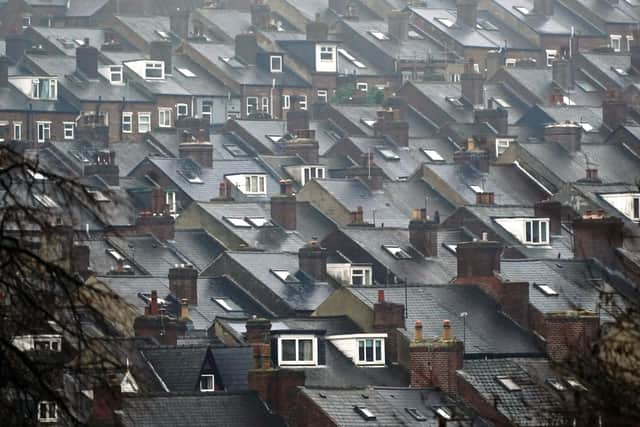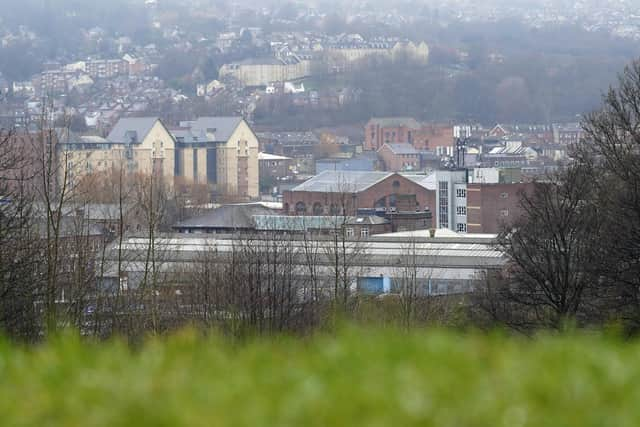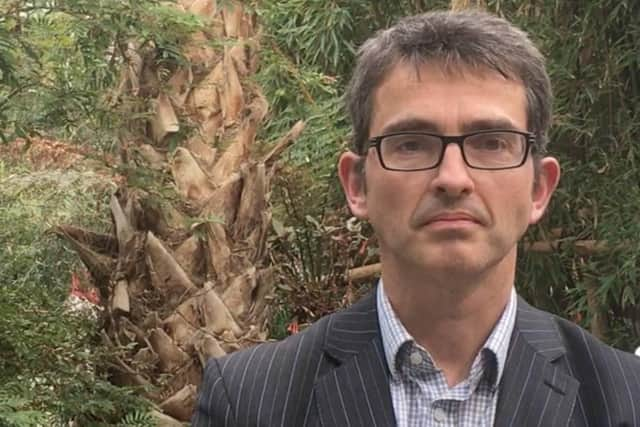The pandemic has made life even harder for the most vulnerable people in Sheffield
and live on Freeview channel 276
Public Health chiefs at Sheffield Council have completed a 400 page report looking at health inequalities in the city and say the pandemic “has added terrible news to bad news”.
The report shows every aspect of life from housing and poverty to education and health has become worse for disadvantaged people.
Advertisement
Hide AdAdvertisement
Hide AdThere have been “significant variations in academic progress” as families struggling to home education for months on end. Children in high occupancy homes or poor housing are likely to have moved substantially backwards.


The three most deprived constituencies of Sheffield South East; Heeley; and Brightside and Hillsborough, have the most furloughed workers and the report predicts more job losses to come.
Poverty has become more widespread. The report says: “After ten years of austerity and welfare cuts, many people were already struggling before the pandemic leaving them with few resources to cushion the crisis.
“The pandemic has thrown many more people into financial difficulty and tipped those who were just about managing into poverty or in some cases outright destitution.”
Advertisement
Hide AdAdvertisement
Hide AdPeople are struggling with not just the virus but also Long Covid, which is lasting months on end and could ultimately affect hundreds of people in the city.


And there is widespread concern about the effect social isolation and home working are having on people’s mental health with higher levels of anxiety, depression and stress.
NHS England is anticipating a rise of 40 per cent in emotional and mental health problems. Depression has doubled during the pandemic with one in five people reporting it, says the Office of National Statistics.
Eleanor Rutter, a public health consultant, wrote the report in summer following the first lockdown and it has just been presented to councillors.
Advertisement
Hide AdAdvertisement
Hide AdShe said the fact the report was written months ago was a “very sobering thought” as it does not take into account more recent lockdowns.


“We’ve had more than 800 deaths and many of those were from the most vulnerable communities,” she told a scrutiny meeting.
“I don’t need to remind anybody that we were a very divided city pre-pandemic, we’ve got some of the most affluent and the most deprived wards in the country and that’s played out in inequalities in health.
“We’ve got a 10 year difference in life expectancy between the best and the worst areas in Sheffield.
Advertisement
Hide AdAdvertisement
Hide Ad“When we started out doing this piece of work last spring, there was a real hope that we were going to document not just the bad things that has happened but the good things
“Sheffield has shown itself to be resilient and caring and loads of good things have come out of the pandemic but let’s not make any mistake – the impact over the last year for Sheffield has been devastating.
“And the good things that have happened have really not been equally or fairly spread across the city.
“A clear example is working from home which works really well for many people but it’s not a luxury afforded to people in low paid jobs.
Advertisement
Hide AdAdvertisement
Hide Ad“Many of them will have been furloughed, they’re now facing unemployment, or they’ll have continued to work in frontline jobs with an associated risk of infection.”
Mr Rutter said the pandemic has quite clearly made existing inequalities worse.
“Let’s make no mistake, this is a pandemic of inequality. I wonder what this pandemic would have looked like in Sheffield if everybody shared the same life experience as those of us living in our most affluent and privileged communities? I think it would have been very different.
“In excess of 80 per cent of our health is based on our social, physical and economic circumstances and it’s the unequal spread of those factors across the city that cause inequalities.
Advertisement
Hide AdAdvertisement
Hide Ad“The particularly bad news is that those factors cluster together so people living in poverty tend to live in poor quality housing, they tend to have poor experiences of education, that underpins low paid work. Those inequalities pass from generation to generation and are exacerbated.
“Unfortunately that bad news got worse with the arrival of the pandemic because it is those very same people who are affected so badly, who are most likely to become infected, more likely to have poor outcomes and are more likely to be affected by the adverse outcomes of lockdown.”
Several council departments had been asked to contribute to the report but this had also been a challenge because staff – particularly those in public health – were spending so much time dealing with the crisis.
The report has more than 100 recommendations but Director of Public Health Greg Fell said there was no easy solution after ten years of austerity.
Advertisement
Hide AdAdvertisement
Hide Ad“Covid has exacerbated and shone a very bright light on inequalities but it’s very important to remind ourselves there is not one big thing that will solve this problem. Lots of people want me to have a big red button beside my desk, it doesn’t exist.
“The key point is that the last 10 years and the funding settlement for local government has undoubtedly had an impact on life expectancy and the gap between best and worst.
“There’s plenty going on to address health inequality, the real answers are government and structural, but we do our best in various shapes and sizes.”
READ MORE:
Advertisement
Hide AdAdvertisement
Hide AdIn these confusing and worrying times, local journalism is more vital than ever. Thanks to everyone who helps us ask the questions that matter by taking out a digital subscription or buying a paper. We stand together. Nancy Fielder, editor.